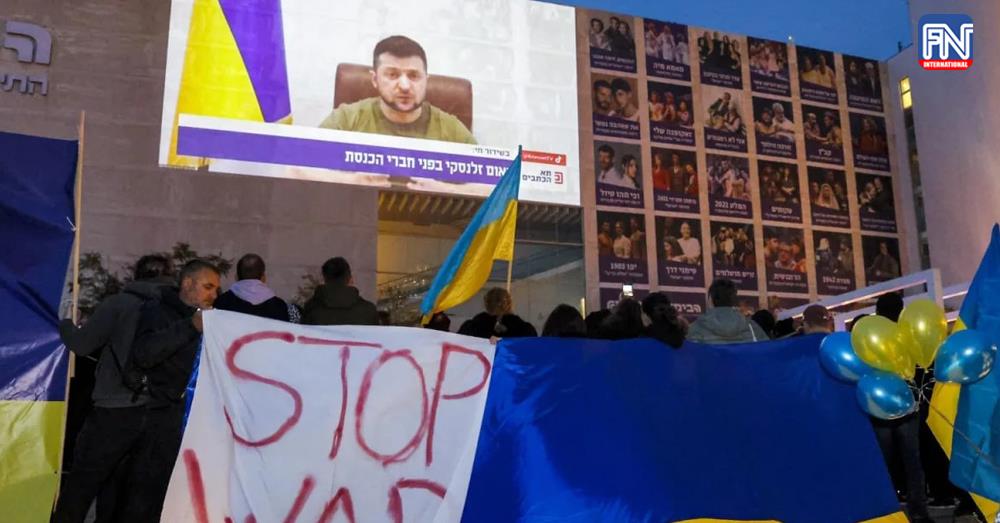KYIV, March 24 (AFP) - Ukraine's president made an impassioned plea for global street protests against Russia's bloody month-old invasion and for democratic leaders amassed in Brussels for emergency summits on Thursday (Mar 24) to send more advanced weaponry.
In a late-night television address from the emptied streets of the besieged capital Kyiv, a defiant but visibly tired Volodymyr Zelenskyy appealed in English for the world to help ensure his nation's survival.
"The world must stop the war," he said. "Come from your offices, your homes, your schools and universities, come in the name of peace, come with Ukrainian symbols to support Ukraine, to support freedom, to support life."
Addressing leaders of the G7, NATO and the European Union meeting in the Belgian capital, he called for a step-shift in weapons deliveries, including more advanced fighter jets, missile defence systems, tanks, armoured vehicles and anti-ship missiles.
"Freedom must be armed," he said bluntly, as a heavily armed guard kept watch close by - a stark reminder that Zelenskyy's own life, and the life of his nation, are in acute peril.
His appeal came exactly one month after Russian tanks rolled over the border, bringing a conflict that has already killed thousands of Ukrainian civilians, and thousands more soldiers on both sides.
More than 10 million Ukrainians have fled their homes, as cities have faced sustained Russian bombardment from land, sea and air.
In the southern port city of Mariupol alone, 100,000 people are trapped without food, water or power and enduring fierce shelling by Russian forces.
In the city's hospital, local officials said staff have evacuated patients to the basement, where they are treated by candlelight beside 600 to 700 other residents seeking what little safety they can.
Experts say Russia's once-vaunted military has been bogged down by dogged resistance and has turned to long-range bombardment in the hope of breaking Ukrainian resolve.
Washington said Wednesday that Russian President Vladimir Putin's bombing campaign amounted to war crimes, escalating a confrontation between Moscow and the West that has rivalled the worst crises of the Cold War.
"We've seen numerous credible reports of indiscriminate attacks and attacks deliberately targeting civilians, as well as other atrocities," US Secretary of State Antony Blinken said.
"Based on information currently available, the US government assesses that members of Russia's forces have committed war crimes in Ukraine."
So far the conflict has not spilt over into direct military conflagration between Russia and NATO, but Ukraine's allies fear that Moscow may up the ante with a chemical, biological or even tactical nuclear attack.
Facing mounting diplomatic and economic pressure, Putin's regime has responded by warning Russia could use nuclear weapons if it faces an "existential threat".
In the back-to-back Brussels summits, US President Joe Biden and other leaders are expected to bring pledges of more lethal weapons to Ukraine and more punishing sanctions for Russia's already crisis-wracked economy.
But they will also have to weigh how to deter further Russian escalation, without risking an all-out war with Russia.
NATO chief Jens Stoltenberg has said the summit will see leaders agree to "major increases of forces" on the alliance's eastern borders, including four new battle groups in Bulgaria, Hungary, Romania and Slovakia.





